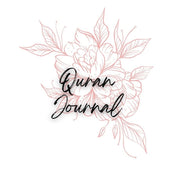Key Takeaways:
- Acknowledgment of Belonging to Allah: The phrase "Inna lillahi wa inna ilaihi raji'un" reminds us of our ultimate return to Allah, fostering patience and submission during times of loss.
- Supplication for the Deceased: The dua "Allahummaghfirlahu warhamhu wa ‘afihi wa’fu anhu" seeks forgiveness, mercy, and pardon for the deceased, reflecting the Islamic duty of praying for others.
- Gender-Specific Adjustment: The supplication can be adapted for females, showing the inclusivity and personal connection in Islamic prayers for the deceased.
The phrases "Inna lillahi wa inna ilaihi raji'un" and "Allahummaghfirlahu warhamhu wa 'afihi wa'fu anhu" are often recited upon hearing about someone's death. Here's their meaning:
1. Inna lillahi wa inna ilaihi raji'un
إِنَّا لِلَّٰهِ وَإِنَّا إِلَيْهِ رَاجِعُونَ
Translation:
"Indeed, we belong to Allah, and indeed, to Him we shall return."
This phrase acknowledges that everything belongs to Allah, and all of us will eventually return to Him. It is a verse from the Qur'an (Surah Al-Baqarah, 2:156) and is recited as an expression of submission and patience during times of loss or calamity.
2. Allahummaghfirlahu warhamhu wa ‘afihi wa’fu anhu
اللَّهُمَّ اغْفِرْ لَهُ وَارْحَمْهُ وَعَافِهِ وَاعْفُ عَنْهُ
Translation:
"O Allah, forgive him, have mercy on him, grant him safety, and pardon him."
This is a supplication (Dua) made for someone who has passed away. It seeks Allah's forgiveness, mercy, protection, and pardon for the deceased, demonstrating love and care for the person's soul in the afterlife.
- The first phrase is recited upon learning about any loss or hardship.
- The second phrase is specifically a prayer for the deceased. If the deceased is female, the pronouns are adjusted to:
اللَّهُمَّ اغْفِرْ لَهَا وَارْحَمْهَا وَعَافِهَا وَاعْفُ عَنْهَا
(Allahummaghfirlaha warhamha wa 'afihi wa'fu anha).
These words reflect deep faith, submission to Allah's will, and a commitment to praying for others.
Frequently Asked Questions:
Q: What is the meaning of "Inna lillahi wa inna ilaihi raji'un"?
A: This phrase means "Indeed, we belong to Allah, and indeed, to Him we shall return" (Surah Al-Baqarah, 2:156). It expresses submission to Allah’s will and serves as a reminder of our ultimate return to Him.
Q: When should "Inna lillahi wa inna ilaihi raji'un" be recited?
A: It is recited upon hearing news of any loss, hardship, or calamity as an acknowledgment of Allah's divine plan and a demonstration of patience.
Q: What does "Allahummaghfirlahu warhamhu wa 'afihi wa'fu anhu" mean?
A: This dua translates to "O Allah, forgive him, have mercy on him, grant him safety, and pardon him." It is a prayer for the deceased, asking for Allah's mercy and forgiveness.
Q: How is the dua "Allahummaghfirlahu..." adjusted for females?
A: For a female deceased, the pronouns in the dua are adjusted to: "Allahummaghfirlaha warhamha wa 'afihi wa'fu anha," ensuring the prayer is appropriate for the individual.
Q: Why is reciting these phrases important in Islamic tradition?
A: These phrases express submission to Allah’s will, reinforce faith, and fulfill the Islamic duty of remembering and praying for others, particularly those who have passed away.












